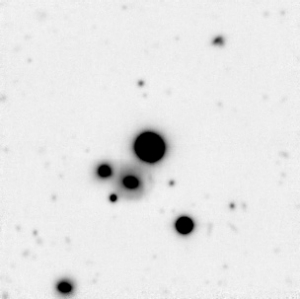The second data release, the large program "MUSE Analysis of Gas around Galaxies project - MAGG" (ESO programme ID: 197.A-0384, PI: M. Fumagalli) provides the community with 28 high-quality VLT/MUSE cubes centred on bright redshift z~3-4.5 quasars (Lofthouse et al. 2020).
MUSE Analysis of Gas around Galaxies (MAGG) second data release

These absorbers were discovered in archival high-to-medium resolution spectra of these quasars collected, among others, with UVES and XSHOOTER. The primary goal of this ESO large programme is to probe the distribution of gas around these intermediate redshift galaxies by linking known optically thick absorbers and the galaxies newly discovered by MUSE.
This second MAGG data release contains the 23 MUSE cubes acquired by the large programme and plus 5 MUSE cubes for 5 quasars taken from archival data, which were part of the MUSEQuBES survey (Muzahid et al. 2020). These systems are J095852+120245, J102009+104002, J142438+225600, J162116-004251, J200324-325145 and data was observed as part of the programmes 094.A-0280, 095.A-0200, 099.A-0159, 097.A-0089, 094.A-0131.
For each of the 28 quasar fields, the final coadded MUSE data cube, reduced using the CubEx software (Cantalupo et al. 2019), is published in the DR2.0, with their white lamp image. Each cube results from the combination of a total of at least 4 hours on source obtained in sub-arcsecond seeing conditions. The dept of this data allows the detection of 90% of the point source line emitters brighter than an integrated line flux of 3E-18 erg/s/cm2.
More information about the release content can be found in the accompanying documentation; the DOI assigned to the data collection is 10.18727/archive/12. The DR2.0 MAGG products are available via the Science Portal or programmatically via TAP.
